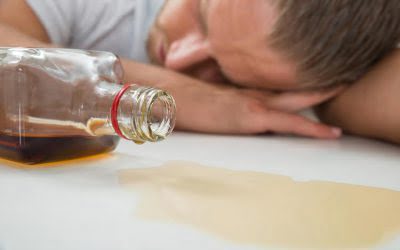Long-term alcohol abuse can not only induce panic attacks but can also lead to PTSD. This becomes even more true if a person has an anxiety or panic disorder. Alcohol not only contributes to anxiety but rewires the part of the brain responsible for coping with fear. Because of this, a person will https://g-markets.net/sober-living/12-addiction-recovery-group-activities/ hold on to fear-inducing associations longer and will have a harder time recovering from trauma. Alcohol is a common form of self-medication for social anxiety, generalised anxiety disorder, and panic disorder. In fact, about 25% of people with panic disorder have a history of alcohol dependence.

The whole situation can present a difficult period for all affected, including the person’s family members and close friends. The hallucinations can be incredibly vivid while the seizures in some instances can be life-threatening. The connection between alcohol and anxiety creates a vicious circle for its users. Because alcohol causes the condition, a person may be tempted to consume more and more to deal with the soured symptoms, such as panic attacks, fever after drinking, and fear.
What happens to your body when you stop drinking?
Evidence for the substance-induced hypothesis comes from multiple sources. A central prediction of this causal model is that abstinence from alcohol should be followed closely by a conspicuous decrement in anxiety symptoms. Data from a study of 53 patients who participated in alcohol treatment at a residential substance abuse program were consistent with this prediction (Kushner et al. 2005).

Finally, TCAs may react with alcohol in the brain to cause respiratory depression (Bakker et al. 2002). Similar to the common-factor and self-medication hypotheses, the literature underpinning the substance-induced pathway to comorbid anxiety and AUDs is convincing but cannot account for the findings consistent with the other causal models. It also is important to note that reliance on timeframes, although useful, could mask an independent course of anxiety symptoms among individuals who also have an AUD. For example, it is possible that an anxiety disorder which appears at a time when the person is experiencing alcohol-related problems may have an etiology separate from alcohol use.
Alcohol can lead to withdrawal symptoms
Another proposed theory refers to an expectancy component in people with anxiety who use alcohol. In this situation, a person expects to get relief from their anxiety symptoms when they consume alcohol because of its effect on the central nervous system (CNS). Post-traumatic stress disorder is an anxiety disorder resulting from past trauma. Alcohol’s Transactional Writing: Letters That Heal effects change your brain chemistry so profoundly that alcohol withdrawal can be a serious medical emergency. When you aren’t drinking, the lack of natural inhibitors can contribute to panic attacks and seizures. It is also possible that you were self-medicating with alcohol to help suppress the symptoms that would cause panic attacks.
